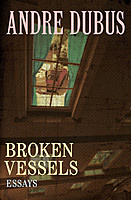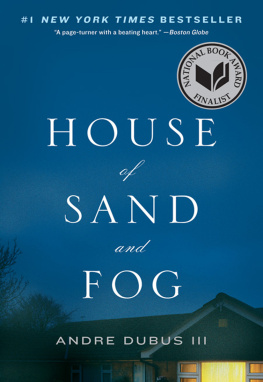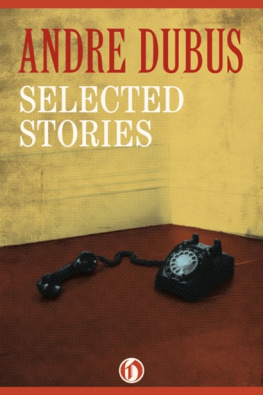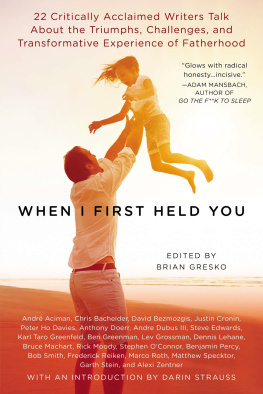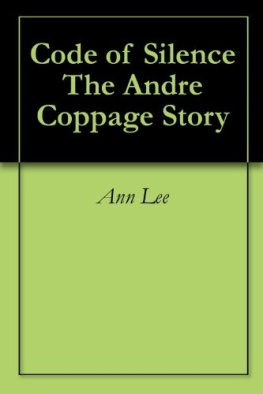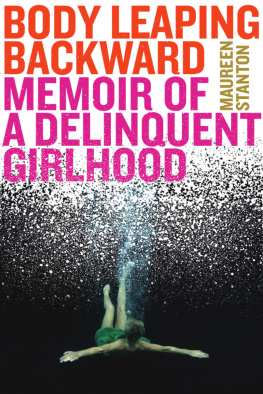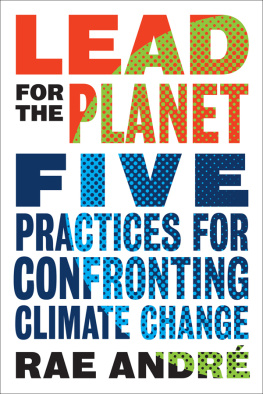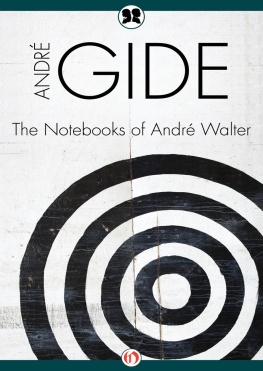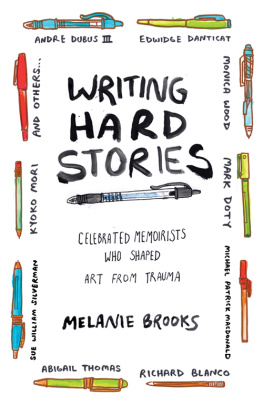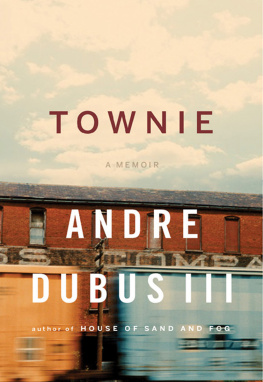Andre Dubus - Broken Vessels
Here you can read online Andre Dubus - Broken Vessels full text of the book (entire story) in english for free. Download pdf and epub, get meaning, cover and reviews about this ebook. genre: Detective and thriller. Description of the work, (preface) as well as reviews are available. Best literature library LitArk.com created for fans of good reading and offers a wide selection of genres:
Romance novel
Science fiction
Adventure
Detective
Science
History
Home and family
Prose
Art
Politics
Computer
Non-fiction
Religion
Business
Children
Humor
Choose a favorite category and find really read worthwhile books. Enjoy immersion in the world of imagination, feel the emotions of the characters or learn something new for yourself, make an fascinating discovery.
- Book:Broken Vessels
- Author:
- Genre:
- Rating:5 / 5
- Favourites:Add to favourites
- Your mark:
- 100
- 1
- 2
- 3
- 4
- 5
Broken Vessels: summary, description and annotation
We offer to read an annotation, description, summary or preface (depends on what the author of the book "Broken Vessels" wrote himself). If you haven't found the necessary information about the book — write in the comments, we will try to find it.
Andre Dubus: author's other books
Who wrote Broken Vessels? Find out the surname, the name of the author of the book and a list of all author's works by series.
Broken Vessels — read online for free the complete book (whole text) full work
Below is the text of the book, divided by pages. System saving the place of the last page read, allows you to conveniently read the book "Broken Vessels" online for free, without having to search again every time where you left off. Put a bookmark, and you can go to the page where you finished reading at any time.
Font size:
Interval:
Bookmark:
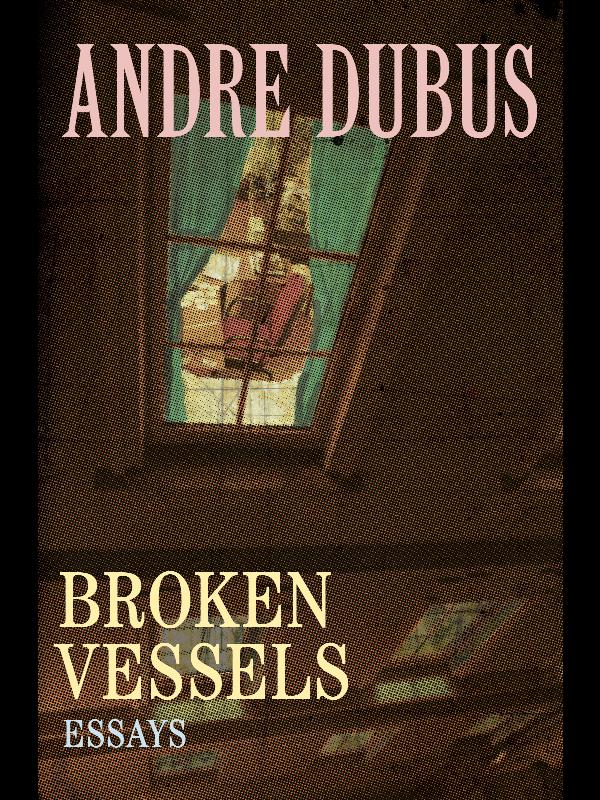


Broken Vessels
Essays
Andre Dubus

to Geoffrey Moran and his Grace
I am abidingly grateful to Ann Beattie, E. L. Doctorow, Gail Godwin, John Irving, Stephen King, Tim OBrien, Jayne Anne Phillips, John Updike, Kurt Vonnegut, and Richard Yates. On five Sunday afternoons in the winter of 1987, they read from their work at the ballroom of the Charles Hotel in Cambridge, Massachusetts, to raise money for me and my family, after I was struck by a car and lost a leg. And I am grateful to all those people who came to the benefit readings and to those who mailed checks to me in the year following my injury, and to Scott Downing and Frieda Arkin. All of this kindness saved me from financially going under, and made me feel, during a very bad time, that I had hundreds of friends I didnt even know.
Memory, like love, is an act of imagination, an
abandonment and a possession.
SUSAN DODD, MAMAW
CONTENTS
Part One
Out Like a Lamb
Running
Under the Lights
The End of a Season
Railroad Sketches
Part Two
Of Robin Hood and Womanhood
The Judge and Other Snakes
On Charons Wharf
Part Three
After Twenty Years
Into the Silence
A Salute to Mister Yates
Selling Stories
Marketing
Part Four
Two Ghosts
Intensive Care
Lights of the Long Night
Sketches at Home
A Woman in April
Bastille Day
Husbands
Breathing
Part Five
Broken Vessels
A Biography of Andre Dubus
Part One
OUT LIKE A LAMB
O UR FIRST YEAR in New England we lived in a very old house in southern New Hampshire. The landlord wanted someone to live in it while he was working out of the state, the rent was a hundred dollars a month, the house was furnished, had seven fireplaces (two of them worked), and in the backyard was a swimming pool. There were seventy acres of land, most of it wooded except for a long meadow, hilly enough for sledding. There were also three dogs, eight sheep, and a bed of roses. There was a caretaker too, whom I will call Jim: a man in his early thirties, who lived in town where he did other work and came to the house often to see about the lawn, the pump for the swimming pool, the sheep, and the roses. The landlady wanted the roses there when she came home after the year, and the landlord wanted the sheep. They were eight large ewes, and he bred them.
They were enclosed by a wire fence in a large section of the meadow. They had a shed there too, where they slept. All we had to do about them was make sure they didnt get through the fence, which finally meant that when they got through, we had to catch them and put them back in the pasture. This was my first encounter with sheep. When I was a boy, sheep had certain meanings: in the Western movies, sheep herders interfered with the heros cattle; or the villains ideas about his grazing rights interfered with the heros struggle to raise his sheep. And Christ had called us his flock, his sheep; there were pictures of him holding a lamb in his arms. His face was tender and loving, and I grew up with a sense of those feelings, of being a source of them: we were sweet and lovable sheep. But after a few weeks in that New Hampshire house, I saw that Christs analogy meant something entirely different. We were stupid helpless brutes, and without constant watching we would foolishly destroy ourselves.
The sheep did not want to leave their pasture, at least not for long and not to go very far. One would find a hole in the fence, slip out, then circle the pasture, trying to get back in. The others watched her. Someone in our family would shout the alarm, and wed all go outside to chase her. At first we tried herding the ewe back toward the hole in the fence, standing in the path of this bolting creature, trying to angle her back, as we closed the circle the six of us made, closed it tighter and tighter until she was backed against the fence, and the hole she was trying to find. But she never went back through the hole, never saw it, and all our talking and pointing did no good. Finally we gave up, simply chased her over the lawn, around the swimming pool, under trees and through underbrush until one of us got close enough, dived, and tackled. Then three of us would lift her and drop her over the fence, and wed get some wire and repair the hole. For a while this was fun, but soon our tackling was angry, and some of us punched her in the jaw as we lay on top of her.
One day in that first summer I looked into the shed and saw one of them lying on her side. The others were grazing in the pasture. Next afternoon she was still lying there; I stood at the fence and looked more closely, saw that her mouth was open, her head at a strange angle. I didnt have to look anyway, because by then her stench was on the breeze. I phoned Jim, and he said next day hed come out and wed bury her. That evening her smell was in the air over the swimming pool and, closer to the house, it mingled with the aroma of burning charcoal on the patio. So we took the food inside and after dinner I filled a bucket with solid chlorine we sprinkled in the pool. Out in the dark I went through the pasture gate, trying to see the other sheep under the starlit sky. I imagined them huddled upwind from the smell, sleeping out there until someone came and removed death from their shed. The shed was open at its front, but there was a door at the back leading to a narrow platform. I did not want to go through that door, into a place where in the dark I would be alone. I held my breath, opened the door, and stepped in: then the shed was filled with sound and I released my breath, inhaled again in an instant of terror that was suddenly outrage as I saw the other seven sheep rising quickly from where they had been sleeping, around the dead ewe. They ran through the open front, into the light from the sky. They were looking back at me, over their shoulders, and in the pale light their faces looked abject, looked caught, as if they too knew they were more obscene than all the words I was now screaming at them.
When Jim came next day he brought two cigars and we lit them and went to the shed. She was long dead. We both gagged and turned away, then got an old piece of tarpaulin from his pick-up truck. I had phoned him the night before, after going out there and returning to the kitchen and many beers, and said: Jim, lets burn that thing. We need fire. We need cleansing. He had brought a mixture of motor oil and gasoline, saying the oil would thicken the gasoline, make it burn longer. We went back to the shed and, puffing cigars and averting eyes, we pulled the ewe onto the tarpaulin. We gagged again, left the shed, then went back in and dragged her far into the pasture, covered her with sticks, then dead fallen branches, then larger ones, and soaked them and her, then threw a paper torch: the gasoline-whoosh, the quick crackling of sticks and small branches, the sudden heat on our faces, and thick black smoke. The smoke stayed in the air for two days; she took that long to burn. When the fire died in daylight, I went out with more branches and the oil and gasoline and started a new one. On the first night we could see the low flames from our windows. By the second night she was gone.
Font size:
Interval:
Bookmark:
Similar books «Broken Vessels»
Look at similar books to Broken Vessels. We have selected literature similar in name and meaning in the hope of providing readers with more options to find new, interesting, not yet read works.
Discussion, reviews of the book Broken Vessels and just readers' own opinions. Leave your comments, write what you think about the work, its meaning or the main characters. Specify what exactly you liked and what you didn't like, and why you think so.

